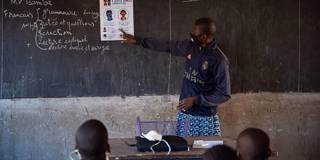
How Africa’s Local Knowledge Can Address Global Crises
The world’s two-year struggle against COVID-19 has shown how critical the knowledge and participation of local communities can be in addressing global threats. In Africa and elsewhere, we need to capitalize on this resource if we are to have a fighting chance of mitigating and adapting to the effects of climate change.
BAMAKO, MALI – When I returned home to Mali in 2019 after two decades working across Africa and the rest of the world, I found it difficult to recognize the place. The optimism spurred by the country’s development in the 1990s had given way to despondency – and insecurity and climate change were largely to blame.